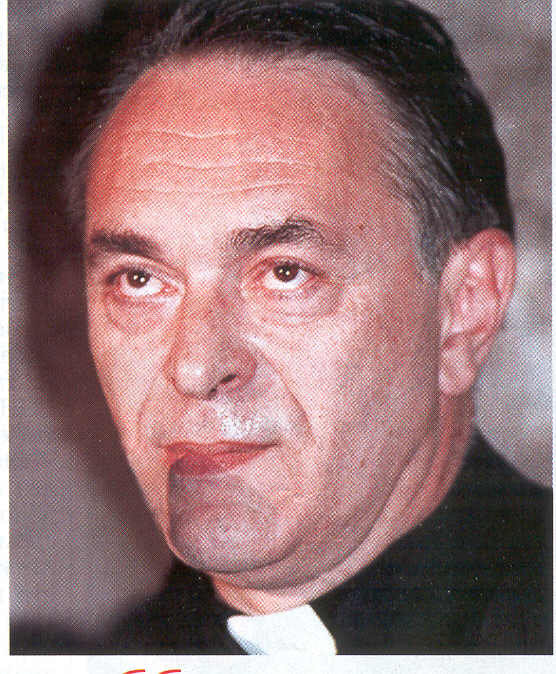‘I look forward to Montenegro’s independence’
by Branko Sbutega - interviewed in NIN (Belgrade)
Head of the Catholic community in Kotor, Don Branko Sbutega is a member of the Croatian-Montenegrin Inter-State Council established in 2004.

The Montenegrin government has offered to pay Croatia for the war damage in Konavle [Dalmatia south of Dubrovnik]. What is your comment?
Mr Vujanović’s declaration of the government’s readiness to start with modest payments for the great war damage inflicted on Dubrovnik is part of a political option that accepts full responsibility because it aspires to full sovereignty. The two go together. President Mesić’s recent visit to Serbia/Montenegro provided an opportunity to assert this.
What sort of future do you wish for Montenegro: union with Serbia or independence?
I am fully in favour of the referendum on independence, and hope for a positive outcome. Anything else means absorption of Montenegro into Serbia. It means that we would have to condemn ourselves to historical, national, cultural and linguistic oblivion, to becoming like Serbia rather than evolving according to our own model. Why? For the good of what? Montenegro within Serbia would not have the treatment of the Basque country or Corsica, because Serbia is neither Spain nor France.
According to Metropolitan Amfilohije Radović, the erection of a [Serbian Orthodox] church on Rumija represents the fulfilment of a pledge of many generations. You, however, call this act a politically motivated misuse of religion. Why?
Which pledge? Which and whose generations? One cannot hide reality behind such pseudo-epic and pathetic slogans. What we have on Rumija’s summit is a pre-Christian ruin, undoubtedly a cult and possibly also a burial ground. The carrying of the so-called Cross of St Vladimir (upon whom the Metropolitan recently bestowed the additional name Jovan) is the continuation of an old custom predating Vladimir of Doclea - and indeed Christianity. The ancient tradition of pilgrimage to Rumija is common to all three religious communities: Catholic, Orthodox and Muslim. Anthropologically clear and ecumenically captivating. Now, suddenly, we have the appearance of a ‘holy initiative’ involving also the army and the opposition parties, all in the name of confessional and inter-confessional spiritual values. This is difficult to believe. It would have been far better if the Metropolitan had repaired the recently destroyed common altar in the church at Sutomor. Those who destroy altars can hardly be hailed for building churches in which no one but themselves and their like can see them as other than aliens. We are talking of politics or something still worse. St Vladimir was neither a Serb nor a member of the Serb or any other Eastern Church. As a Christian he belonged to the Church of Rome, as indeed did all of what is now Montenegro. Spiritual authority cannot be maintained by falsification of history.
The tenth anniversary of Operation Storm is nearing. You were in Croatia at that time. How do you judge in retrospect the attitude of the Croatian government to that crime?
Operation Storm was not a crime. It was the liberating action of an internationally recognised state to regain part of its territory occupied by another state. On the other hand, the crimes committed in its wake against the state’s own citizens in the area cannot and should not be treated as justified in any way. Those who incited or committed them, and those who could or should have prevented them but did not do so, should be called to account. So far as I can see this is the position of the Croatian government, though the efforts to investigate and prosecute those responsible leave much to be desired.
Are your views on these important matters your own, or do they reflect the position of the Catholic Church?
They are mine, of course, but they are inspired by what I as an individual and clergyman believe are the principles of my faith and of the church to which I belong. I am sure that were this not the case, my church would call me to account.
Translated from NIN (Belgrade), 4 August 2005.
|